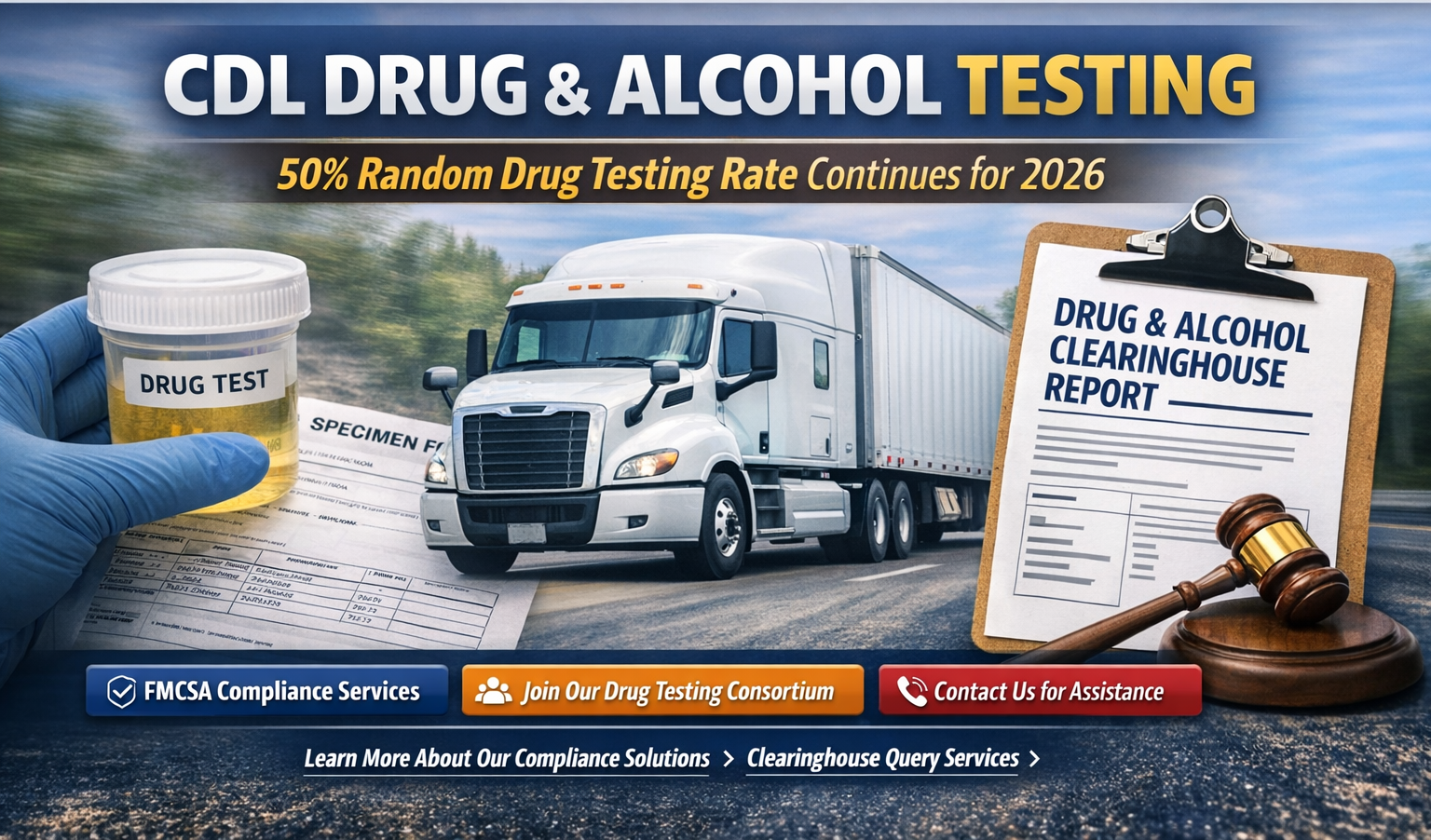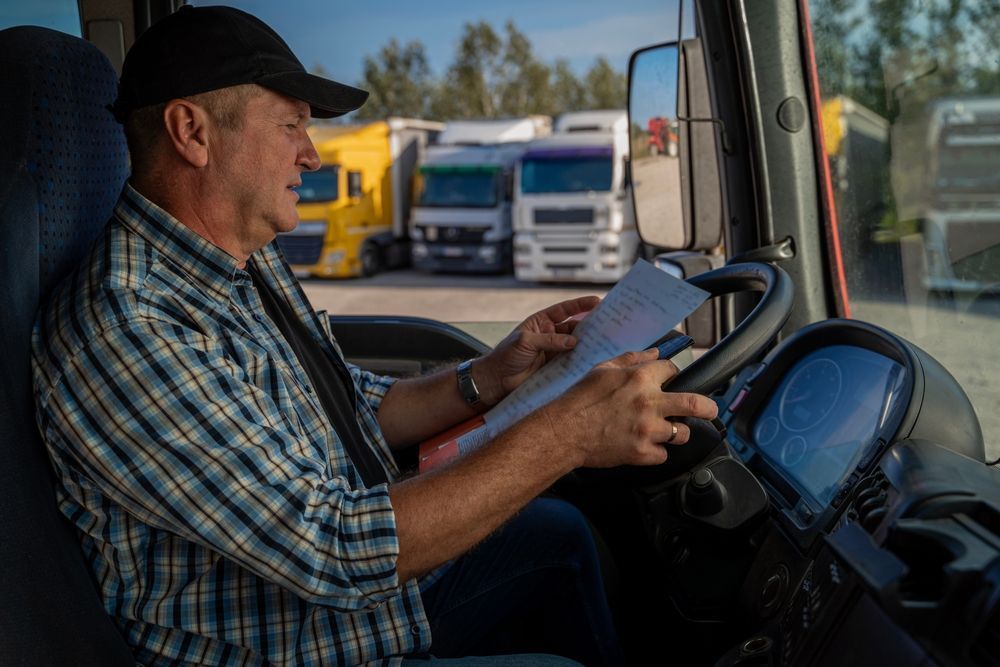What is a DOT Consortium and Why Does It Matter?
August 20, 2025
Share this article:
Running a compliant fleet means keeping up with a wide range of DOT regulations, and drug and alcohol testing is a major part of that responsibility. For many trucking companies, handling the testing process internally is not realistic. The administrative load, recordkeeping requirements, and random testing schedules can quickly become overwhelming. That is where a DOT consortium comes in.
A DOT consortium, sometimes called a drug consortium for truck drivers, helps companies manage their testing program in a way that meets federal requirements while freeing up time to focus on operations. For small to mid-sized fleets, it can be the most practical path to staying compliant without stretching internal resources.
Understanding DOT Drug and Alcohol Testing Requirements
The Federal Motor Carrier Safety Administration (FMCSA) sets strict rules for drug and alcohol testing in the trucking industry. These rules apply to all safety-sensitive employees who operate commercial motor vehicles that require a commercial driver’s license.
Testing is required in several situations. Pre-employment tests must be completed before a driver can perform any safety-sensitive function. Random testing occurs throughout the year to help identify and deter drug or alcohol use. There are also specific requirements for post-accident, reasonable suspicion, return-to-duty, and follow-up testing.
Employers must maintain detailed records for each test and meet specific random testing rates established annually by the DOT. Failing to meet these standards can lead to violations, fines, and even the removal of drivers from safety-sensitive positions. For smaller operations, these requirements can be complex to manage, which is one reason many turn to a consortium for support.
Defining a DOT Consortium: What It Is and How It Works
A DOT consortium is a third-party program that manages drug and alcohol testing for multiple companies. Instead of each employer running its own random testing pool, the consortium combines drivers from different member companies into a single pool. This allows smaller fleets to meet federal random testing requirements without having to manage the entire process on their own.
The consortium selects drivers for random tests using a scientifically valid method, schedules the tests, and tracks the results. It also maintains the records needed for DOT compliance. This shared structure spreads the administrative responsibilities across many participants, making the process more efficient and cost-effective.
For many businesses, a consortium also acts as a safeguard. It reduces the risk of missing a test deadline or mismanaging required documentation. The result is a more streamlined
compliance process that still meets every DOT requirement.
Who Needs to Join a DOT Consortium?
Any company regulated by the FMCSA that employs safety-sensitive drivers must participate in a compliant drug and alcohol testing program. For larger fleets, this may be handled internally. Smaller fleets, independent owner-operators, and businesses with only a few CDL drivers often choose to join a DOT consortium.
Owner-operators are specifically required to be part of a consortium because they cannot manage their own random testing. The consortium serves as an independent administrator, selecting drivers for testing and ensuring all records meet DOT standards.
Membership is also common among non-trucking companies that operate CDL-required vehicles, such as construction firms, delivery services, and certain municipal operations. For these businesses, a consortium provides the same compliance coverage without the need for a dedicated in-house compliance team.
Key Benefits of Consortium Membership for Compliance
A DOT consortium provides a clear structure for meeting drug and alcohol testing requirements:
Accurate Random Selection: Drivers are chosen for testing through approved selection methods that meet DOT’s statistical standards.
Reduced Administrative Workload: The consortium manages scheduling, records, and reporting so your team can focus on operations.
Consistent Compliance Monitoring:
Testing rates and timelines are tracked throughout the year to avoid missed obligations.
Cost Efficiency:
Sharing a testing pool across multiple companies often lowers costs compared to running an individual program.
Audit Readiness: Records are organized and maintained in a way that allows for a fast, confident response during an audit.
For many small and mid-sized fleets, these advantages close compliance gaps and bring more stability to daily operations.
Common Compliance Risks Without a Consortium
Managing a drug and alcohol testing program alone can increase the chance of missing key requirements:
Missed Random Testing Rates: Falling short of DOT’s required annual testing percentages can result in penalties.
Incomplete Recordkeeping:
Missing or disorganized documentation can cause problems during an audit.
Testing Delays: Without proper tracking, random and post-accident tests may not be completed within required timeframes.
Higher Costs:
Paying for individual testing without the shared pool of a consortium can raise expenses.
Administrative Overload: Small teams may struggle to keep up with scheduling, notifications, and reporting.
These risks can lead to violations, lost productivity, and unnecessary expenses that a consortium can help prevent.
How National Fleet Services Supports Your Consortium Needs
National Fleet Services offers full DOT consortium management designed to keep fleets compliant and audit-ready. Our team handles random selections, testing coordination, and all required documentation. This process is backed by our DOTFocused platform, which tracks testing schedules and stores records in one secure location.
We work with small and mid-sized fleets, owner-operators, and non-trucking businesses that operate CDL vehicles. Our approach removes the administrative burden and reduces the risk of violations. When you partner with National Fleet Services, you gain both expert support and a proven system that meets DOT standards year-round.
Contact us today to learn more about our DOT consortium services or request a demo of DOTFocused to see how we can simplify your compliance process.
fleet insights






